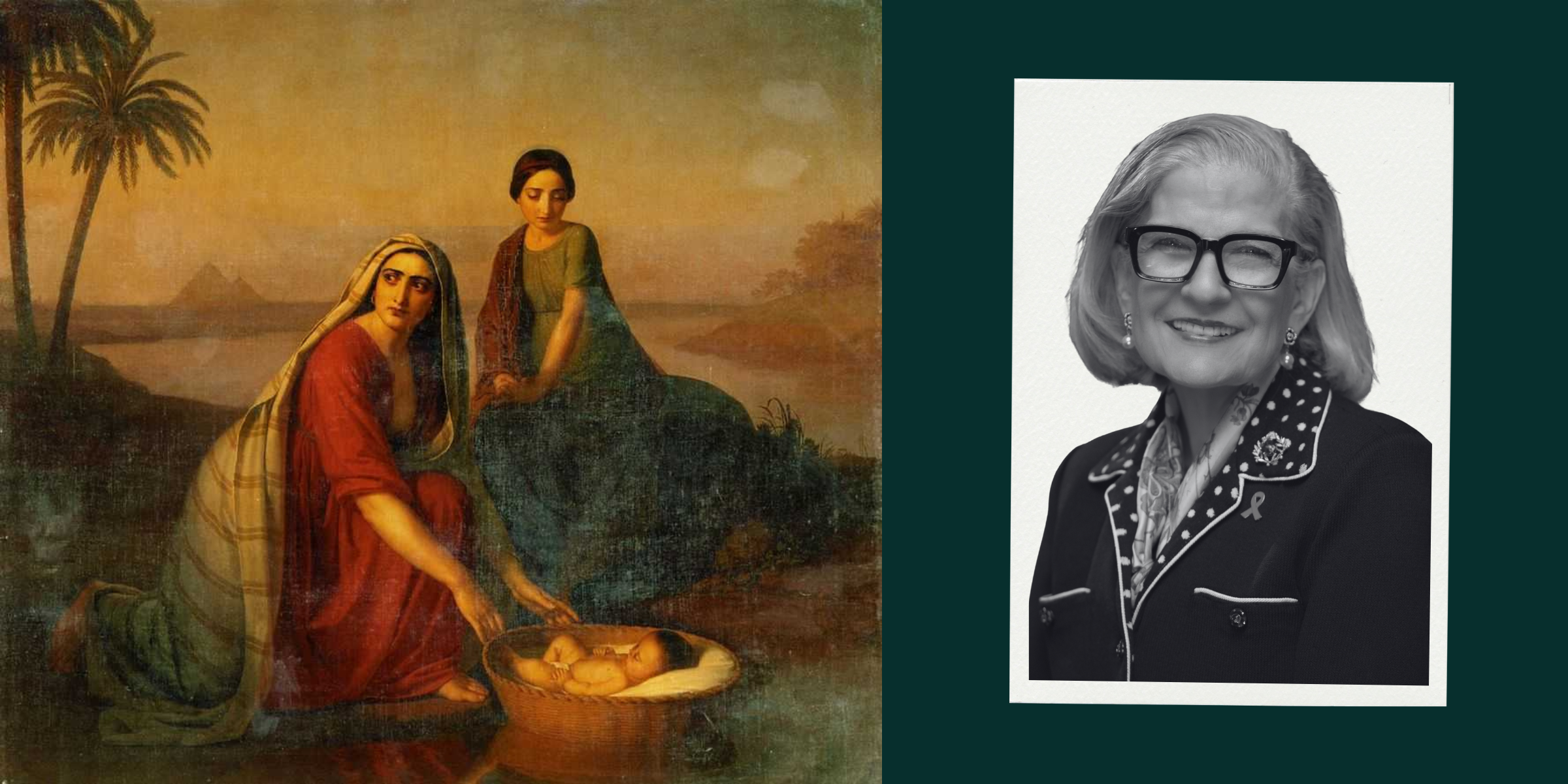Hadassah
President's Column
From Miriam’s Well to Hadassah Wellness
We celebrate Passover in the shadow of our time: For the past 18 months, Israel has endured its longest war, and the world has seen the worst surge of antisemitism in nearly a century.
But our history teaches us to overcome adversity. Hadassah has never wavered, not in hard times over the past 113 years, and not since October 7, 2023. In Israel, Hadassah institutions are a bulwark of healing and morale.
At the beginning of the war, some 400 staff from the Hadassah Medical Organization were called up for reserve duty; a similar number saw family members mobilized. And at least 21 staff have lost family members. Nonetheless, Hadassah’s hospitals have lived up to their reputation, treating injured soldiers and civilians and accelerating the opening of the Gandel Rehabilitation Center at Hadassah Hospital Mount Scopus and our Round Building on the Hadassah Hospital Ein Kerem campus to meet the surging demand.
In spite of everything, 2024 was a banner year of innovation at HMO. From AI and immunotherapy cancer treatments to breakthroughs in understanding Alzheimer’s, ADHD and other brain disorders, our researchers have remained in the forefront of Israeli and world science.
Newsweek recently published its World’s Best Hospitals 2025 list, and HMO appeared on the overall roster for the first time. On the survey’s list of World’s Best Specialized Hospitals, Hadassah was included for cardiology for the fifth time and for oncology and smart technology for the fourth.
Our advocacy over the past year has focused on defending Israel and demanding that Hamas be held accountable for terrorism and the weaponization of sexual violence. Our End The Silence campaign has repeatedly called out the United Nations and the International Committee of the Red Cross.
We have also delivered more than 100,000 messages to the White House, members of Congress, state legislatures, college administrators and others, advocating for a strong United States-Israel relationship, protecting women’s reproductive rights and promoting women’s health equity. And our From Fear to Resilience: Women Facing Antisemitism report has generated awareness and fueled our advocacy by widely sharing statistics about how deeply American women are experiencing anti-Jewish hate.
Passover asks how we got to where we are. Hadassah founder Henrietta Szold and the other leaders of our founding generation recognized that they lived in an age of expanding women’s rights. They also knew that the new freedom was a kind of wilderness in which they had to pave their own path.
Coming out of the First Zionist Congress in 1897, the men who led the movement focused on the corridors of power and diplomacy. Herzl’s dream was to create a Jewish state within 50 years, and none of us would fault him for missing that target by just a few months.
Hadassah’s focus on practical Zionism—Jewish body and soul as opposed to the political realm—grew out of Szold’s own experience of the dismal public health conditions she observed on her first visit to the Holy Land in 1909. Over the ensuing decades, she took on several elected positions in pre-state Israel as the Zionist vision took root and blossomed, including on the executive committee of the World Zionist Organization and on the Va’ad Le’umi.
By 1948, Hadassah had built a network of more than 130 hospitals, clinics, dispensaries and infant welfare stations that became the foundation of Israel’s health care system; we turned most of it over to the state after independence. And with Mandate Palestine’s first nursing school in the 1920s and Youth Aliyah in the 1930s, we also planted fertile seeds of an educational system that continue to flourish and shape lives today.
Hadassah was driven by a deep appreciation of Jewish tradition. We took our name from Queen Esther, but we also owe much of our inspiration to the prophetess Miriam. If Moses negotiated his people’s freedom, it was his sister who navigated the waters. As a girl, she gathered the intelligence needed to save her baby brother’s life, knowing where Pharaoh’s daughter would be at the Nile’s edge and later arranging for their mother, Yocheved, to be his nursemaid in the royal household.
Years later, as Jewish mothers grabbed children, bedding and goats during their hasty departure from slavery to freedom, Miriam also grabbed her timbrel, with which she led women in song across the dry bed of the Sea of Reeds. The Midrash says that after Miriam died in Sinai, God provided, in her honor, a moving well of water to sustain the Jewish people in the desert.
We are fortunate to live in an age when all avenues of leadership are open to women. And we also know that the health and welfare of the Jewish people and the Jewish state reap the benefits of our unique vision and action.
A happy Passover to all!











 Facebook
Facebook Instagram
Instagram Twitter
Twitter
Leave a Reply